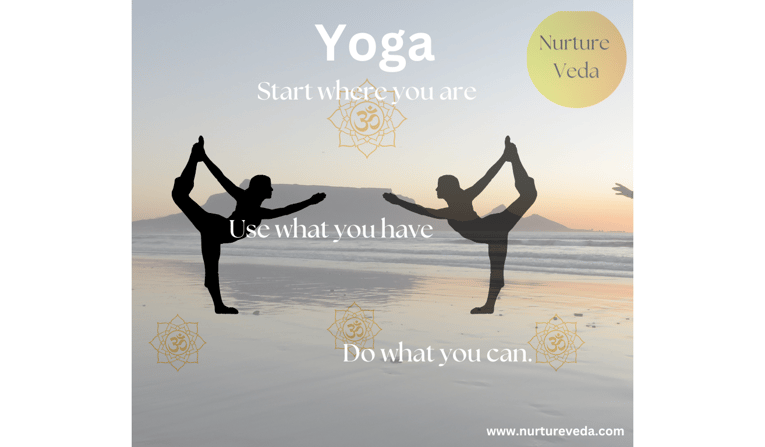When you purchase through links on our site, we may earn an affiliate commission, at no extra cost to you.
What is Yoga? A Beginners Guide
Yoga is more than just physical exercise; it’s a holistic practice that connects body, mind, and spirit.
YOGA BLOG
Pragati
12/7/20242 min read


Trust me , it isn't difficult at all. One step at a time and you will get there. Yoga is more than just physical exercise; it’s a holistic practice that connects the body, mind, and spirit. Rooted in ancient Indian philosophy, yoga offers tools to cultivate inner peace, improve physical health, and achieve mental clarity. If you’re a beginner, understanding the basics of yoga can help you take the first steps on this transformative journey.
The Meaning of Yoga
The word “yoga” comes from the Sanskrit root “yuj,” meaning “to unite” or “to join.” At its core, yoga is about achieving harmony within oneself and with the world. It integrates physical postures (asanas), breathing techniques (pranayama), meditation, and ethical principles to create balance and self-awareness.
Benefits of Yoga
Yoga offers a wide range of physical, mental, and emotional benefits. These include:
Improved Flexibility and Strength: Regular practice stretches and strengthens muscles, enhancing overall mobility.
Stress Reduction: Breathing and meditation techniques calm the mind and reduce anxiety.
Enhanced Focus and Clarity: Yoga encourages mindfulness, helping you stay present and focused.
Better Posture and Balance: Physical postures improve alignment and body awareness.
Boosted Energy and Vitality: Yoga revitalizes the body and mind, combating fatigue.
Starting Your Yoga Journey
Choose the Right Style: Experiment with different styles to find one that resonates with you. Beginners of Yoga often start with Hatha or gentle Vinyasa classes. Don't bother about the names. Just start!
Find a Teacher or Class: Guided classes, whether in person or online, can help you learn proper techniques and build confidence.
Invest in Basic Equipment: A yoga mat and comfortable clothing are essential. Props like blocks and straps can be helpful but are optional.
Practice Regularly: Consistency is key. Even 10-15 minutes a day can make a difference.
Listen to Your Body: Yoga is not about competition or perfection. Honor your limits and progress at your own pace.
The Art of Breathing and Mindfulness
In yoga, breath control (pranayama) is as important as physical movement. It involves the art of regulated breathing, by inhaling, exhaling, and holding your breath. Deep, conscious breathing helps anchor the mind and enhances the benefits of the practice. Similarly, mindfulness cultivates awareness, enabling you to connect with your inner self.
Final Thoughts
Trust the process. Yoga is a journey of self-discovery and growth. It’s a practice that adapts to your unique needs, offering benefits that extend far beyond the mat. As a beginner, embrace yoga with an open mind and a willingness to learn. With time, patience, and dedication, yoga can transform not just your body, but your entire way of being.

